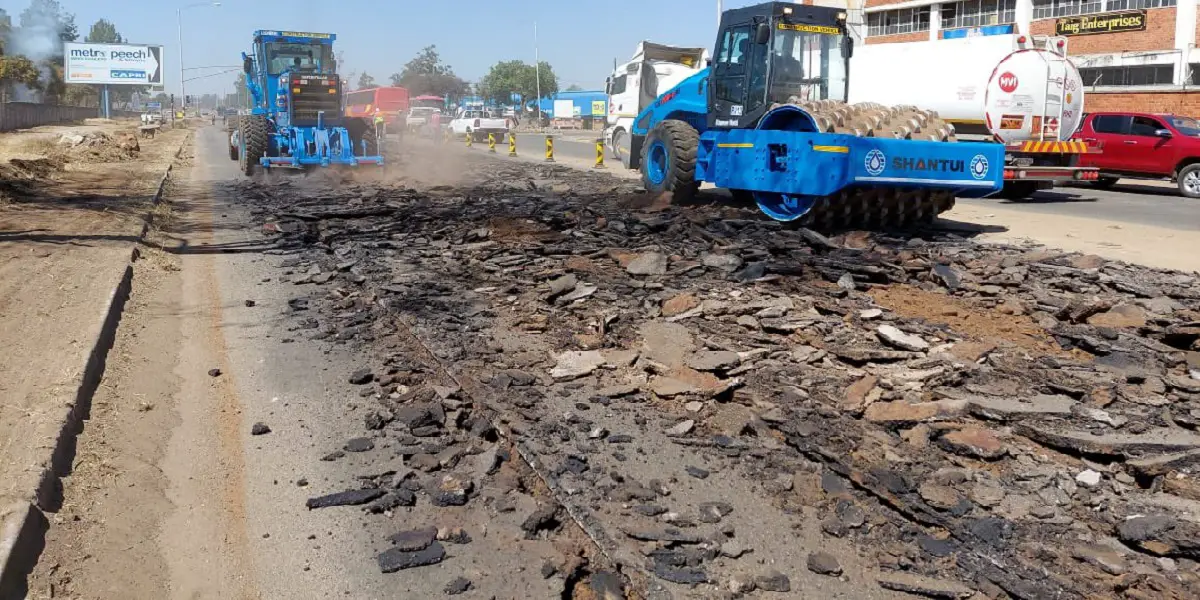As part of the government’s Emergency Road Rehabilitation Programme Phase 2, the Seke Road Reconstruction has been extended to its intersection with Dieppe Road to enhance road user efficiency (ERRP2).
Also Read: SANRAL awards contract for Huguenot Tunnel project
The Seke Road Reconstruction project was supposed to start near Waverley Blankets and conclude at the Maruta Shopping Centre in Hatfield. However, Bitumen World extended it to Coke Corner yesterday. When The Herald crew visited the site yesterday, there was a variety of cutting-edge road construction equipment and Bitumen World workers on the stretch.
The earthmoving from the traffic signals section to Waverley Blankets has shut off the left lane approaching the city centre, damaging the former road surface. While Bitumen World personnel directed traffic, motorists utilised the right lane as a two-way exit and entry path.
Workers were putting the finishing touches on the virtually finished right lane heading from town at the St Patrick’s turn-off.
Road construction is included in the infrastructure clusters, and roads are viewed as important economic enablers in achieving Vision 2030’s objective of upper-middle-income society. Seke Road, which connects Harare Central to Chitungwiza, has been in disrepair for some time, notably the portion between Coke Corner and Chitungwiza, which has become a death trap for vehicles and passengers.
Motorists have applauded the government for promoting development projects such as the Seke Road reconstruction, with some even demand that the project is extended all the way to Chitungwiza.
The government has spent over $1 billion on road rehabilitation, gravelling, and drainage structure as part of President Mnangagwa’s Second Republic’s ERRP2. According to the Second Republic, modernising national transportation infrastructure will enhance economic growth and development.
Over 2 000 kilometres of road have been re-gravelled, and 6 627,9 kilometres of road have been graded, with 701 drainage structures erected or repaired and 184 wash-aways recovered.
Around the country, 4 491,5 kilometres of drains have been opened, and 6 141,2 kilometres of verges have been cleaned, with pothole repair operations ongoing, with a total of 4 794,8 kilometres fixed.

Leave a Reply